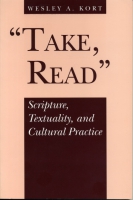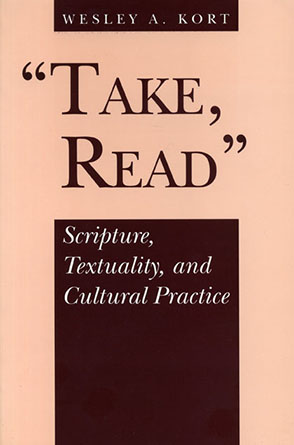Take, Read
Scripture, Textuality, and Cultural Practice
Wesley A. Kort
“Kort's writing renders his archaeology of the most difficult philosophers in the West into a remarkably easy read—and his rhetorical gentleness renders a radical argument into a deceptively natural reading. The book has transformatory impact because Kort has, in convincing fashion, rewritten the intellectual history of postmodern academe.”
- Description
- Reviews
- Bio
- Subjects
Kort argues that what we take as modernity is based on a practice of reading, not in what it means to read, but in what texts are read as scripture. He argues that the postmodernist attempt not to read anything at all as scripture is an illusion that the theories of reading of Maurice Blanchot and Julia Kristeva expose. In conclusion, Kort raises the question of what it might mean today to again read the Bible as though it were scripture, that is, to read the Bible with practices indicated by Blanchot and Kristeva.
“Kort's writing renders his archaeology of the most difficult philosophers in the West into a remarkably easy read—and his rhetorical gentleness renders a radical argument into a deceptively natural reading. The book has transformatory impact because Kort has, in convincing fashion, rewritten the intellectual history of postmodern academe.”
“This is a most interesting way of approaching the whole terrain of hermeneutics. I often found myself seeing things from a new and rewarding angle. One of the interesting elements of the discussion is the way in which interpretation of the biblical text is brought into dialogue with interpretation of non-biblical texts—and, indeed, with interpretation of things other than texts. There is a lot of learning evident in the book. The learning is draped gracefully over the shoulder; but it is there.”
Wesley A. Kort is Professor of Religion and Literary Studies at Duke University. His most recent books, both with Penn State, are Bound to Differ: The Dynamics of Theological Discourses (1992) and Story, Text, and Scripture: Literary Interest in Biblical Narrative (1988).
Mailing List
Subscribe to our mailing list and be notified about new titles, journals and catalogs.




